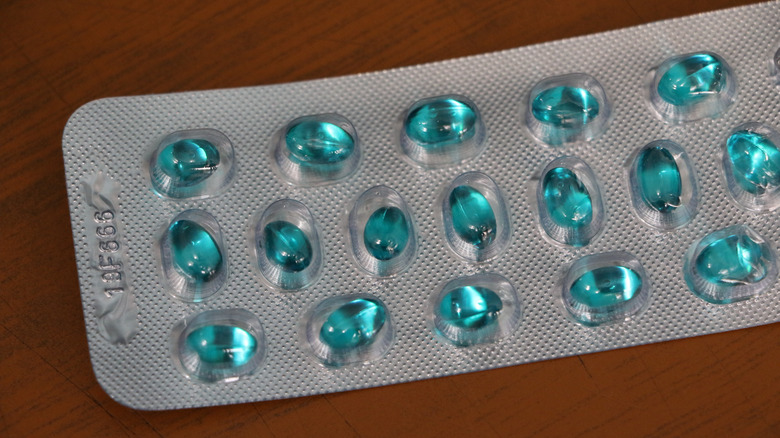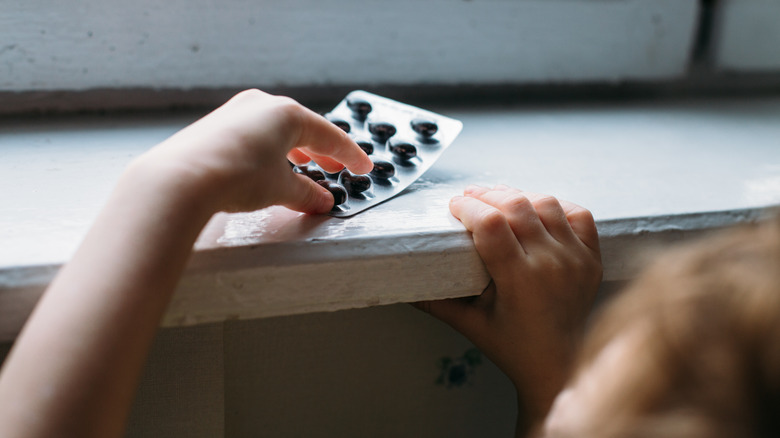Why The FDA Is Cautioning Parents About Prescription Cough Medication Overdoses In Kids
Benzonatate, a prescription cough medicine sold under the brand name Tessalon, has become a rising concern as more and more children are ingesting the medication, according to a 2022 study published in Pediatrics. Pediatric poisonings from benzonatate were on the rise from 2010-2018, the study found, from both unintentional exposure and intentional use.
General poison exposures occur more often in young children under 6 years old, according to the National Capital Poison Center. In 2020, there were 37.9 poison exposures per 1000 children under the age of 6, and the highest incidence of poison exposures occurred in 1 and 2-year-old children. Compared to 633 exposures per 100,000 people in the general population, this number was over 6,000 per 100,000 1 and 2-year-olds. While the majority of overall poison exposures are unintentional, 12.6% of exposures are intentional in children ages 6-12, and 64.3% of exposures in teens are intentional.
In 2021, the medical and work-loss costs of injuries and deaths related to poison exposures in children were $234 million in emergency department visits and $494 million in hospitalizations (via Pediatric Reports). The top causes of poisoning include cosmetics and personal care products, toys, household cleaning substances, and tobacco products.
The rise in Benzonatate pediatric poisonings
The findings of the new study, conducted by the Food and Drug Administration, looked at reports to poison control centers regarding benzonatate from 2010-2018 (via NBC News). Researchers analyzed 4,689 reports and found that the number of calls had increased each year, with the largest increase of 24% occurring from 2015-2016. Prescriptions filled for the drug also rose during this time frame. Benzonatate is the only prescription cough medication on the market that doesn't contain narcotics, and study authors say this increase could be attributed to attempts to curb inappropriate uses of cough medications that include narcotics, such as opioids.
You can prevent poisoning in your home and keep your kids safe by storing things like medications and household cleaners in their original packaging, locked away from children, according to the American Academy of Pediatrics. Discard unused medication and keep things with small batteries, like remote controls and key fobs, out of children's reach so they can't mishandle them. Check dosages when giving kids medication and for liquid medications, always use the measuring device that came with the product rather than a kitchen spoon.
If you think your child has experienced a poison exposure and you need help from Poison Control, use the webPOISONCONTROL online tool or call 1-800-222-1222. Both options are free, expert, and confidential.


